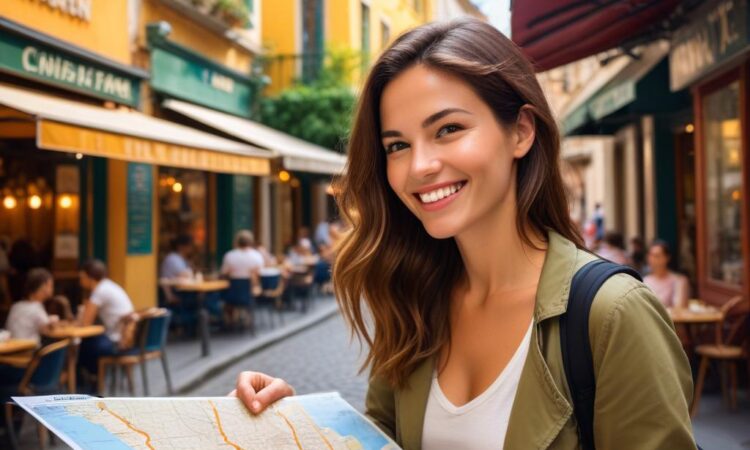Solo Female Travel Safety and Security: Best Practices & Resources
Traveling solo as a woman can be an incredibly rewarding experience, offering unparalleled freedom and self-discovery. However, it’s crucial to prioritize safety and security throughout your journey. This comprehensive guide addresses common concerns and provides practical advice to help you plan a safe and enjoyable solo trip.
Planning Your Trip: Laying the Foundation for a Safe Journey
Careful planning is the cornerstone of safe solo female travel. Before you even book your flights, consider these essential steps:
Research Your Destination:
Thoroughly research your destination, focusing on areas known for their safety and those to avoid. Look for travel advisories from your government and read reviews and blogs from other female travelers. Understanding the local customs and laws is also crucial to avoid unintentional offenses or misunderstandings.
Share Your Itinerary:
Share a detailed itinerary with trusted friends or family members, including flight details, accommodation information, and planned activities. Regularly update them on your progress, especially if your plans change. This simple act can be invaluable in case of an emergency.
Learn Basic Phrases:
Learning a few basic phrases in the local language can greatly enhance your safety and communication. Knowing how to ask for help, directions, or report an incident can be critical in unfamiliar situations.
Make Copies of Important Documents:
Make copies of your passport, visa, driver’s license, travel insurance policy, and other important documents. Store these copies separately from the originals, ideally in a cloud-based storage system or with a trusted contact. This safeguard protects you against loss or theft.
Choosing Safe Accommodation:
Your accommodation is your base of operations, so selecting a safe and secure place to stay is paramount. Consider these factors:
Location:
Choose accommodations in well-lit, populated areas with easy access to transportation and emergency services. Avoid isolated or remote locations, especially at night.
Reviews:
Read reviews from other travelers, paying close attention to comments about safety and security. Look for mentions of reliable security measures, such as keycard access and 24-hour reception.
Reputation:
Opt for reputable hotels, hostels, or guesthouses with a proven track record of safety and customer satisfaction. Look for established brands or those with positive online reviews from other female travelers.
Communicate with the Accommodation:
Contact your chosen accommodation in advance to confirm their security measures and address any safety concerns you may have. Ask about their policies on late check-ins, emergency contacts, and staff availability.
Safe Transportation:
Navigating your destination safely requires careful consideration of your transportation options:
Pre-booked Transportation:
Whenever possible, pre-book your transportation, especially for airport transfers or long-distance travel. This eliminates the need to hail taxis or use ride-sharing services independently in unfamiliar areas at night.
Reputable Taxi or Ride-Sharing Services:
If you must use taxis or ride-sharing services, stick to reputable companies with reliable tracking systems and clear pricing structures. Share your ride details with a trusted contact.
Public Transportation:
While public transportation can be a cost-effective option, be aware of your surroundings and avoid traveling alone late at night. Stick to well-lit and populated routes and avoid isolated areas or poorly maintained vehicles.
Avoid Hitchhiking:
Hitchhiking is strongly discouraged for solo female travelers due to significant safety risks.
Safe Activities and Interactions:
Enjoying your trip safely involves being mindful of your activities and interactions:
Avoid Walking Alone at Night:
Avoid walking alone at night, especially in poorly lit or isolated areas. If you must walk at night, stick to well-populated streets and be aware of your surroundings.
Trust Your Instincts:
Pay attention to your instincts. If a situation or person feels unsafe, remove yourself from the situation immediately.
Be Mindful of Your Belongings:
Keep your belongings close and be aware of pickpockets and scams. Avoid displaying expensive jewelry or electronics unnecessarily.
Avoid Excessive Alcohol Consumption:
Excessive alcohol consumption can impair your judgment and make you more vulnerable to harm. Drink responsibly and be aware of your surroundings.
Inform Someone of Your Plans:
Inform someone of your plans for the day, especially if you are engaging in activities that take you away from your accommodation. This allows someone to check in on you if you don’t return as expected.
Staying Connected and Safe:
Maintaining communication and having access to assistance is essential for safety:
Download Useful Apps:
Download useful apps such as those for translation, emergency services, and ride-sharing. Consider a GPS tracker to share your location with trusted contacts.
Inform Your Bank and Phone Provider:
Inform your bank and phone provider of your travel plans to avoid any issues with accessing your funds or using your phone abroad.
Emergency Contacts:
Keep a list of emergency contacts readily available, including local emergency numbers, your embassy or consulate, and trusted contacts at home.
Local Emergency Numbers:
Learn the local emergency numbers for police, fire, and ambulance services. Keep them readily available on your phone and in a written format.
Resources for Solo Female Travelers:
Numerous resources are available to support solo female travelers:
Online Forums and Communities:
Connect with other solo female travelers through online forums and communities to share experiences, tips, and advice.
Travel Blogs and Websites:
Read travel blogs and websites dedicated to solo female travel for valuable insights and inspiration.
Travel Insurance:
Obtain comprehensive travel insurance that covers medical emergencies, trip cancellations, and lost or stolen belongings. Ensure your policy adequately addresses your specific needs as a solo female traveler.
Remember, responsible planning and awareness are key to a safe and fulfilling solo female travel experience. By following these best practices and utilizing available resources, you can confidently embark on your adventure knowing you’ve taken the necessary steps to protect yourself.
This guide provides general advice, and individual circumstances may vary. Always adapt these suggestions to your specific destination, personal comfort level, and the specific activities you’ll undertake.
Safe travels!

